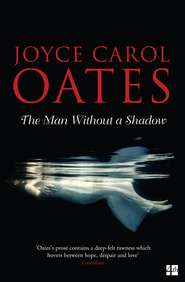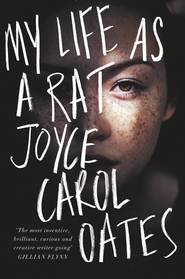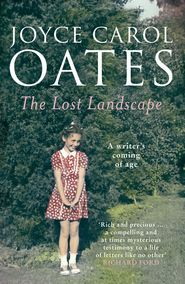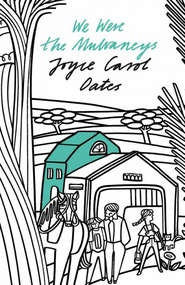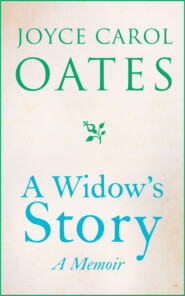По всем вопросам обращайтесь на: info@litportal.ru
(©) 2003-2025.
✖
Little Bird of Heaven
Автор
Год написания книги
2019
Настройки чтения
Размер шрифта
Высота строк
Поля
“No thanks, Daddy! I don’t like fries.”
“Must be hungry, Puss, the way you were running around on that basketball court. C’mon.”
I was hungry. I was very hungry. But could not bring myself to eat the thick greasy-salty fries, reheated in a microwave oven behind the bar, doused with ketchup, the kind of food my mother was quick to perceive was likely to be leftovers from other meals, scraped off other customers’ plates.
Daddy shoved the platter of fries in my direction. I thought Ben would eat these! and so I picked up one or two fries, to break into smaller pieces and pretend to eat.
I saw that my father’s knuckles were freshly scratched, bruised. And maybe scarred, beneath. I knew he’d done treework at one time recently—working with chainsaws—I knew that there were men at Sparta Construction who’d had terrible accidents with chainsaws—I wanted to take up my father’s big, scarred hand in mine—to tell him that I loved him, and I did not believe what some people said about him, I knew it could not be true.
Yet with his unshaven jaws and something heavy-lidded, sulky, about his eyes Daddy exuded a sharkish air; here was a man of pride, to whom you did not condescend; the voice on the jukebox, penetrating the smoky interior of the crowded County Line Tavern on a weekday evening, was the very voice of this man’s soul, and you did not condescend to such a soul. I felt a warning shiver of the kind a swimmer might feel as something not-quite-visible—dark, finned, silent—passes close beneath him, he can’t quite see.
The jukebox song was ending. There was a deep-baritone masculine robustness that seemed inappropriate to its subject:
So if your woman’s devilish
You can let her run,
Or you can bring her down and
Do her like Delia got done.
Delia’s gone, one more round!
Delia’s gone
Daddy was nodding with grave satisfaction, chewing French fries. Big lardy-greasy fries the size of his big fingers lavishly doused with ketchup. Whatever the Johnny Cash song meant to him, it had struck a powerful chord. He’d finished his shot of whiskey and signaled for another. Took a hearty swig from the bottle of ale. Fixed me with a squinting wink and a terse Daddy-smile to finally ask what he’d been putting off asking, since I’d returned to the booth. “Well, Krista: what did your mom say?”
Mom! I had not heard this word in my father’s mouth for a very long time. I saw that he’d been hopeful that my mother would be joining us, his eyes shone with a crazy hope.
12 (#ulink_e74839e0-3882-5c1a-8951-e42d278937b2)
MARCH 1983
THE TROUBLE corroding our lives like deep pockets of rust in the hulks of abandoned vehicles. The trouble sucking all the joy out of our lives. And the very awareness the trouble slow to be absorbed by us, who wished each day to think that this! this would surely be the day when the trouble is cleared up.
In retrospect it appears inevitable, and awful. At the time it seems just haphazard.
How Daddy was gone from our household and living with his brother in East Sparta and one day Ben said meanly, “If he’s gone thirteen days he’s gone. He won’t be coming back.”
Zoe Kruller was not a name to be uttered in our household. Yet Zoe Kruller was a name uttered everywhere in Sparta.
On the Sparta radio station local DJ’s were playing songs by Black River Breakdown. Zoe Kruller’s unmistakable voice—throaty, intimate, just-this-side-of-teasing—was suddenly everywhere. The most popular Zoe Kruller songs were “Footprints in the Snow”—the words of which had an eerie prescience, describing what appears to be the mysterious death of a beautiful young woman—
I traced her little footprints in the snow
I found her little footprints in the snow
Now she’s up in heaven she’s with the angel band
I know I’m going to meet her in that promised land
I found her little footprints in the snow
and “Little Bird of Heaven” which was my favorite, and I guess it was Daddy’s favorite too since it was the one Daddy played most often when he was driving one of his vehicles. Zoe Kruller’s voice was airy and playful in this song but melancholy too, you’d find yourself drawing in a breath and biting back a little cry, these words were so beautiful—
Well love they tell me is a fragile thing
It’s hard to fly on broken wings
I lost my ticket to the promised land
Little bird of heaven right here in my hand.
So toss it up or pass it round
Pay no mind to what you’re carryin’ round
Or keep it close, hold it while you can
There’s a little bird of heaven right here in your hand.
In Sparta it came to be thought that Zoe Kruller had left a message—“a nest of clues”—in this song. Especially by girls and women it was thought that Zoe had “named her murderer” in the song and if you listened closely, or wrote the lyrics down and took note of the first letters, or the last letters, of each line, you would know who the man was.
Fallen hearts and fallen leaves
Starlings light on the broken trees
I find we all need a place to land
There’s a little bird of heaven right here in your hand.
In Mom’s car we were driving and there came breathy and urgent in our ears amid gushing heat from the heater—for it was a vicious-windy March morning—the murdered woman’s voice Little bird of heaven right here in your hand—and with a cry my mother switched off the radio.
“Her! That terrible woman.”
Why is Zoe Kruller a terrible woman?
Is it because Zoe Kruller is a slut?
And does a terrible-slut woman deserve to die?
No one could understand why Black River Breakdown had never made a commercial record, never had a contract with a New York City or Los Angeles recording agency, or been invited to perform outside the Adirondack region. Now their girl-singer had been murdered, the dazed little band of musicians found themselves touched with a kind of lurid tabloid glamour like a spotlight beamed into their faces. The fiddler, who was the group’s oldest musician, at forty-six, had gone into hiding and refused to be interviewed by the media except to say he’d known Zoe Kruller “since she’d been the prettiest baby you could imagine”—while the young guitarist with his Elvis sideburns and shoulder-length hair turned up anywhere you’d look—on late-afternoon local TV, in the “entertainment features” pages of the Sparta Journal facing the comic strips, baring his soul saying he hadn’t slept a night since Zoe was murdered, he hoped to God the police would find whoever did this, and fast; he was composing a ballad in memory of Zoe he hoped he and the group could perform sometime soon…
This newspaper article, and others, I would keep in my notebook, in secret. Seeming to know This will be with me all my life. This will change my life.
No one had been murdered in Sparta, or in all of Herkimer County, for a long time: nine years. If you didn’t count—as the media did not—several killings at the Seneca Indian reservation designated manslaughter which had been settled without trials and publicity. And rarely had anyone in Herkimer County been murdered in such a way: in the victim’s residence, in her bed, to be discovered on a Sunday morning by her own son.
The previous murder, in Sparta, had been during a robbery at the Sunoco station on route 31; before that, a homeless man had been hammered to death by another homeless man, in a Sparta shelter. Both killers had been identified and arrested by police within a day or two.






